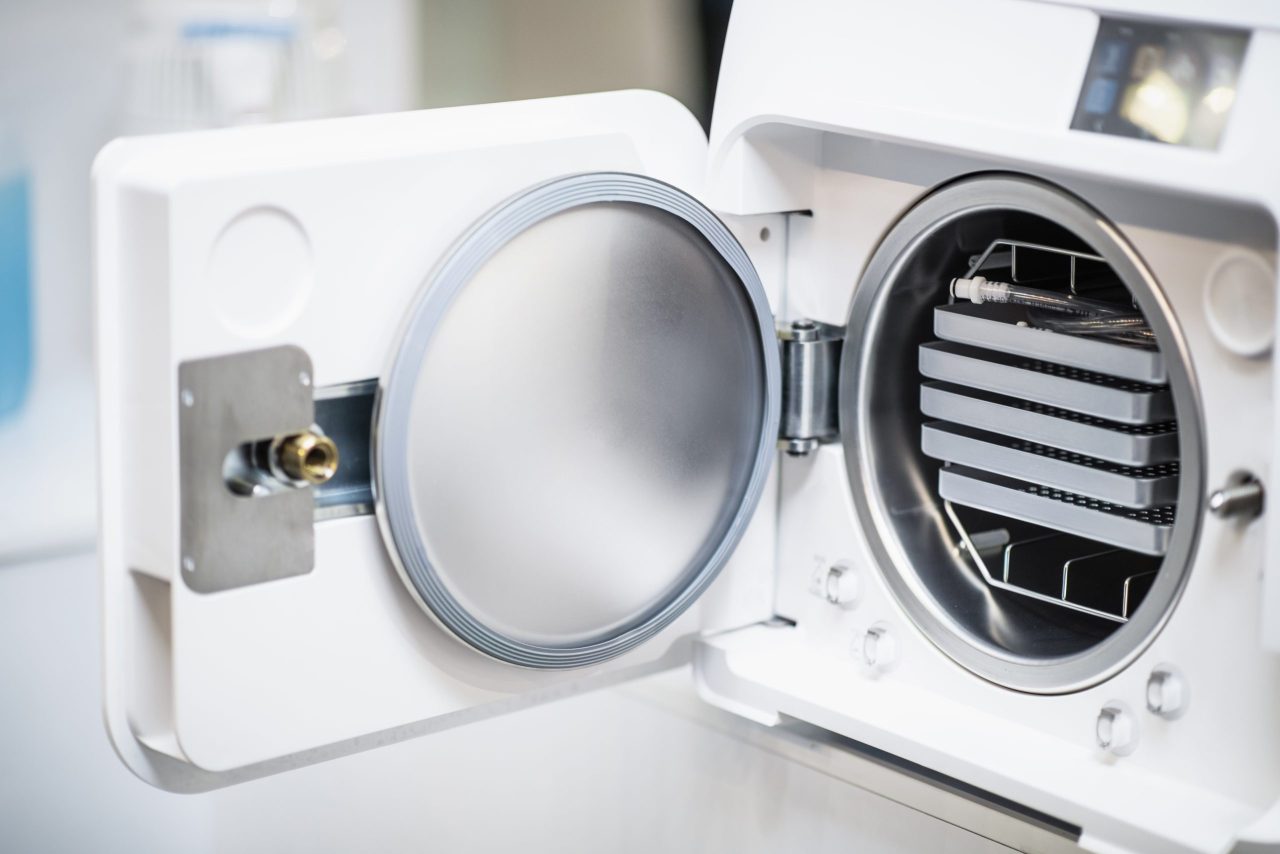An autoclave is a fundamental piece of equipment to guarantee the safety of patients and professionals in dental clinics through the sterilization of dental instruments. Given its importance in the daily work of dental professionals, it is vital to know what type of autoclave is the best and what aspects should be taken into account when choosing it.
The main mission of the autoclave is to eliminate microorganisms and spores settled on dental instruments, coagulating their proteins and thus avoiding the spread of any type of infection. Autoclaves are used for the daily cleaning of utensils used by dentists, such as tweezers or explorers.
This device consists of a thick-walled metal container and hermetic closure, which allows high pressure sterilization, ensuring maximum disinfection of all clinical materials.
Types of autoclaves
There are different models and types of dental autoclaves, classified by the type of instruments to be sterilized:
Class N autoclaves: These types of reduced dimension autoclaves are used for cleaning simple and flat instruments, such as scalpels. They are not the most recommended for dental activity, since their action is insufficient in those utensils that have holes or cannulas, in textile materials, porous loads or packed instruments.
Class S autoclaves: This type of apparatus performs a more complete sterilization task than class N autoclaves, but they are not as effective in sanitizing textile materials. For this reason, they are not indicated in the hygiene of all utensils used in dentistry.
Class B autoclaves: These types of autoclaves are suitable for sterilizing any type of dental instruments: packed materials, textiles, utensils with cannulas and holes or porous loads. In fact, international regulations indicate that class B autoclaves are the most recommended for dental clinics.
What should you keep in mind when choosing an autoclave for your dental clinic?
Acquiring an autoclave for a dental clinic is not always an easy decision, since there are a wide variety of models and brands on the market. You must bear in mind that thanks to autoclaves and their humid heat method, dentists and other healthcare professionals can carry out a complete and effective sterilization process.
The first thing to be clear about is that the autoclaves for dental clinics are known as class B autoclaves because they are the ones that perform the sterilization process in a more complete and safe way. Next, it is recommended to evaluate a series of characteristics of these equipment to find the most suitable model, according to the needs of a specific clinic.
One of the aspects to consider is the internal volume of the autoclave chamber, since depending on this, the device will have a greater or lesser sterilization capacity. Depending on the use and size of the clinic, it will be convenient to choose one size or another.
On the other hand, the number of trays in the autoclave must also be checked. It usually has between three and four, although having an extra tray can be very necessary in certain circumstances. Analyzing the sterilization capacity of porous materials, as well as bagged and non-bagged materials, is another factor to take into account.
At Kalstein we offer you innovative autoclaves for your dental practice. That is why we invite you to take a look HERE

